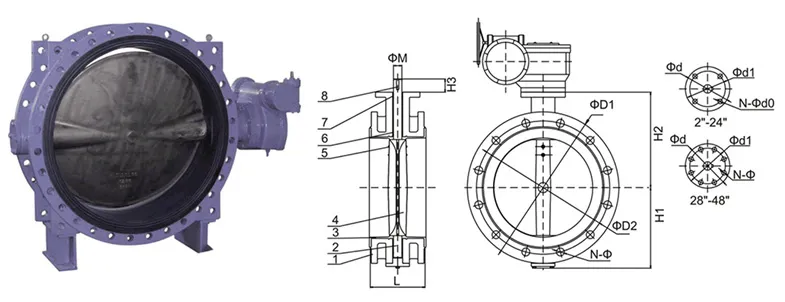10 月 . 22, 2024 03:55 Back to list
pneumatic ball valve
Understanding Pneumatic Ball Valves Function and Applications
Pneumatic ball valves are essential components in various industrial applications, known for their reliability, durability, and efficiency in controlling the flow of fluids. These valves use compressed air to operate a ball component, which rotates to either allow or block fluid flow. This mechanism makes pneumatic ball valves a popular choice in many settings, including oil and gas, water treatment, and manufacturing operations.
The primary function of a pneumatic ball valve is to regulate the flow of liquids or gases through a pipe. The central ball has a hole or port that aligns with the flow path when the valve is open, allowing fluid to pass through. When the valve is closed, the ball rotates 90 degrees, effectively sealing the flow path and preventing any fluid from passing. This design ensures a tight shut-off and minimal leakage, making pneumatic ball valves efficient for controlling large volumes of fluid.
One of the key advantages of using pneumatic ball valves is their quick response time. The operation is typically swift, needing only a small amount of compressed air to actuate the valve, which can significantly enhance process control. In environments where rapid valve actuation is critical, such as in automated production lines, pneumatic ball valves provide an effective solution. Additionally, they require minimal maintenance, which can reduce downtime and operational costs.
pneumatic ball valve

Pneumatic ball valves come in various materials, including stainless steel, brass, and plastic. The choice of material often depends on the application, as different fluids and environments require specific material properties to ensure compatibility and longevity. For example, stainless steel valves are commonly used in corrosive environments, while plastic valves might be chosen for low-pressure applications.
Moreover, pneumatic ball valves can be equipped with various actuators and controls, allowing for integration into larger automated systems. This adaptability makes them ideal for use in smart factories and process industries where automation is increasingly important.
In conclusion, pneumatic ball valves are vital components in modern industrial systems, providing efficient and reliable flow control. Their quick operation, low maintenance needs, and versatility make them suitable for a wide range of applications. As industries continue to evolve, the role of pneumatic ball valves in enhancing operational efficiency will only grow more significant.
Share
-
Understanding the Differences Between Wafer Type Butterfly Valve and Lugged Butterfly ValveNewsOct.25,2024
-
The Efficiency of Wafer Type Butterfly Valve and Lugged Butterfly ValveNewsOct.25,2024
-
The Ultimate Guide to Industrial Swing Check Valve: Performance, Installation, and MaintenanceNewsOct.25,2024
-
Superior Performance with Industrial Swing Check Valve: The Essential Valve for Any SystemNewsOct.25,2024
-
Industrial Swing Check Valve: The Ideal Solution for Flow ControlNewsOct.25,2024
-
You Need to Know About Industrial Swing Check Valve: Functionality, Scope, and PerformanceNewsOct.25,2024